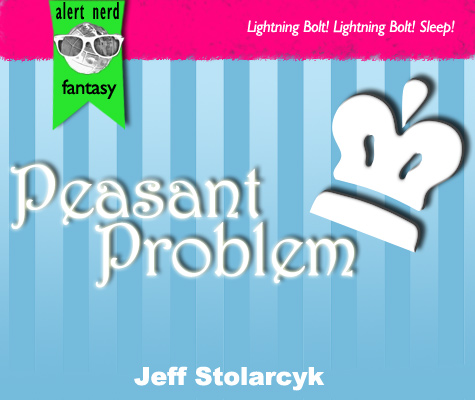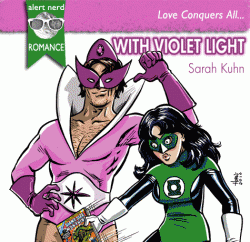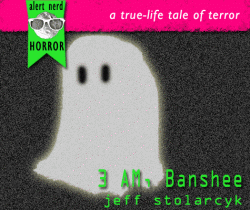In Defense of Heidi; Or, What Blogs Is
In Defense of Heidi; Or, What Blogs Is
Jun 25It sure seems to me that Heidi MacDonald may be taking it on the chin a bit with regards to the issue of comics “journalism” these days, such as it is. (Although as I’ve already pointed out, and no one seems to have noticed, journalism itself these days is a true rarity outside maybe the hallowed halls of the NYTimes and the WashPost; certainly the idea of entertainment “journalism” is long dead, including comics “journalism,” which one could argue never got itself born to begin with.)
These rants across the comics web are coalescing with some “day job” crap that I’m encountering regarding the idea of “blogging,” and what it means. Namely, that few people understand it whatsoever, leading to massive confusion over what any individual blogger’s “responsibility” may be to his/her “audience.”
So lemme ramble atcha and see what you think. If you are out there. But you must be–I can feel you clicking.
Let’s start with the word “blog” itself. As in, what the fuck is it? (Or maybe “WTF is it,” instead.) As a citizen of the internet, I will refer first to our shared index of commonly-agreed-upon knowledge, Wikipedia:
A blog (an abridgment of the term web log) is a website, usually maintained by an individual, with regular entries of commentary, descriptions of events, or other material such as graphics or video. Entries are commonly displayed in reverse chronological order. “Blog” can also be used as a verb, meaning to maintain or add content to a blog.
Many blogs provide commentary or news on a particular subject; others function as more personal online diaries. A typical blog combines text, images, and links to other blogs, web pages, and other media related to its topic. The ability for readers to leave comments in an interactive format is an important part of many blogs. Most blogs are primarily textual, although some focus on art (artlog), photographs (photoblog), sketchblog, videos (vlog), music (MP3 blog), audio (podcasting) are part of a wider network of social media. Micro-blogging is another type of blogging which consists of blogs with very short posts. As of December 2007, blog search engine Technorati was tracking more than 112 million blogs.[1] With the advent of video blogging, the word blog has taken on an even looser meaning of any bit of media wherein the subject expresses his opinion or simply talks about something.
I like the first paragraph best, but I left the second one in there just to illustrate the scope of what we’re dealing with here, which is something any regular user of the internet should grasp at this point.
A “blog” is not a specific type of publication, like a “daily metropolitan newspaper” or an “entertainment magazine focusing primarily on video games.” It’s a vehicle for distributing content. To me, the assumption that all bloggers need to be held to some kind of “standard” on what they write is kinda like saying that paper is responsible for what’s printed upon it.
In fact, it’s not really fair to apply any standards to bloggers as a universal group whatsoever; each blogger defines his or her own standards, usually by the simple act of what they post, and how they do it, and the ephemeral combination of those two things into some kind of collective awareness.
This means that Heidi MacDonald doesn’t have any de facto standards by which she must operate, except those which she herself has created, either willfully through some “mission statement” or just subconsciously as a collection of decisions she has made. In that sense, I think anyone who reads The Beat for any period of time understands Heidi’s own personal blogging “standards” pretty well.
The idea that she should suddenly be held to some abstract “standards” is flat-out wrong. The idea that she should be held to “journalistic” standards is even more ludicrous and stupid. To the extent that such “standards” are becoming more of an issue for bloggers across topics and readerships, it’s all kinda scary and sad.
I’m not suggesting that individual bloggers should be held to NO standards, just that it’s not at all about saying, “Oh, here’s this journalistic standard shit we all came up with 100-odd years ago; let’s use THAT for THIS OTHER UNRELATED medium.”
Although, in some cases it’s related, because some bloggers are truly journalists, and I mean that not just in the sense that some of them may write for major metropolitan dailies or national magazines, but in the sense that they may choose to conduct themselves in accordance with the commonly-accepted “standards” of journalism, which at this point is largely defined in my own understanding at least by daily newspaper journalism…once you get into even national print magazines, I think the edges start to bleed a bit. By the time you hit big national culture/entertainment rags, the edges are all but gone, and you’re reading PR shit rewritten by frustrated novelists, musicians, playwrights, and screenwriters. (Like me! Whee!)
The other side to this coin is the whole “citizen journalist” angle, and how the blogger-haters are all just wasting their words in countless comment threads across the blogosphere.
If you buy a daily newspaper, and you aren’t pleased with the level of coverage you read within it, you have some kind of right to be pissed; you have paid money for this item, even if it was a small amount, and there are certain expectations that have come to be accepted about what you should get from a newspaper. Furthermore, the act of writing for a newspaper has become a position granted almost exclusively upon those who undergo some level of rigorous professional training, in the form of a journalism degree earned at a four-year university, so there’s even more reason to have expectations that should be met.
Blogging, on the other hand, is something ANYONE CAN DO for FREE. It’s true that the blogs with the biggest readerships may get more “access” than people like me, but even I can somehow manage to occasionally wrangle a free book or CD for review, which means someone is contributing a creation to my life in order to read what I think of it, for whatever reason that may be (probably promotion), even though I couldn’t tell you what my “daily unique viewers” are if you stuck a gun up my rectum.
So if you’re so twisted up that a site like The Beat is *gasp* lacking in journalistic standards (!!!), then start your own goddamned blog and put in the time and work necessary to create a site that has such standards, and covers the comics industry to the detail and precision that you yourself require. It’s not like The Beat, or The Comics Reporter, or even Newsarama and CBR were crafted whole-cloth by some crazy multimillionaire willing to pay random schlubs for the right to post stories for nerds to the internet; they are all self-creations of their respective writers/editors. In other words, they only became regarded as some kind of central location for reporting and writing about comics because they were started by people who themselves loved comics and wanted to write about them.
Which–hey, surprise!–YOU YOURSELF CAN STILL DO TOO. Start a comics blog. Hound writers and artists for interviews. Ask the kind of questions you want to see asked. If you read a rumor about Dan DiDio, or overhear something while you’re waiting in line for the bathroom in San Diego, blow in a call to DC’s public relations office and say you want a comment. If they don’t give you one, run what you saw, and point out that they chose not to comment. Or just run it as a blind item. Or don’t run it, because you can’t prove it. It’s up to you.
Let’s not forget: That’s the WHOLE FUCKING POINT of blogs, and the INTERNET ITSELF. It’s not about the creation of just another hierarchy of outlets in some arbitrary and constantly changing pecking order that determines who gets to write what, and why, and even what exactly they can say. It’s certainly not about coming up with some kind of collective “standards” that will just stifle and destroy the internet as we know it, turning blogs into just another dry source for spoonfed corporate shilling.
This is OUR medium, OUR culture. It’s driven by US. Major media conglomerates aren’t paying attention to the internet because they created it; they’re paying attention because WE did. We still do. Not as much as we used to, but anyway.
So quit bitching about the “standards” of a blogger, comics or otherwise, because there are none, and there shouldn’t be. And if that bothers you so much, get off your ass and create what you want to read. That’s how it works.
In other words, nobody puts Heidi in a corner.










Can I get a “Nobody Puts Heidi in a Corner” t-shirt?
How does the fact the Heidi’s blog is hosted by Publisher’s Weekly affect what your saying? Given that Publisher’s Weekly is a news organization, this seems to blur the lines between private webpage and corporate web columnist significantly. If Heidi is writting The Beat as a Publisher’s Weekly employee, then the argument changes significantly.
I think any savvy company that has an associated blog knows that keeping the blog’s chocolate out of the corporate peanut butter is a good thing for everybody. By virtue of a blog’s blogginess, it lives in a different world than a simple newsfeed does, and not treating it like it does or like the blogger is on the payroll to serve some specific corporate agenda is what keeps a blog authentic and relevant and subscribed to. People read The Beat because they want to read Heidi MacDonald and not because they necessarily care about the rest of Publisher’s Weekly.
Ed, that’s an interesting point, and one I hadn’t considered.
I’m going with Jeff’s argument on that one–whether she’s paid by a publication like PW or not, Heidi’s a blogger, and what she writes is what I would traditionally call a “blog,” and I think she’s identified primarily by that blog.
Where your question would be really interesting is in the case of a top reporter for a major daily newspaper, say the person on the White House desk at the Washington Post…what kind of blog could they write? Would they have the latitude to create an informal “blog” for washingtonpost.com that would not interfere with their duties and responsibilities as a reporter? Or would they have to necessarily apply the same rigorous standards to their blog that they did to their stories?
MATT!
You Are one of the biggest losers going round!
Who the fuck spemds there time writing about this shit!
Get a life and a job!!!
Love Keda & Bec :
And it’s my first and second ex-wives, ladies and gentlemen. Take a bow, girls!
Jebus, Matt. We can’t take you anywhere without it turning into a fight.